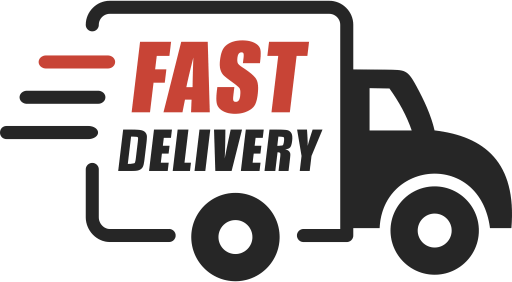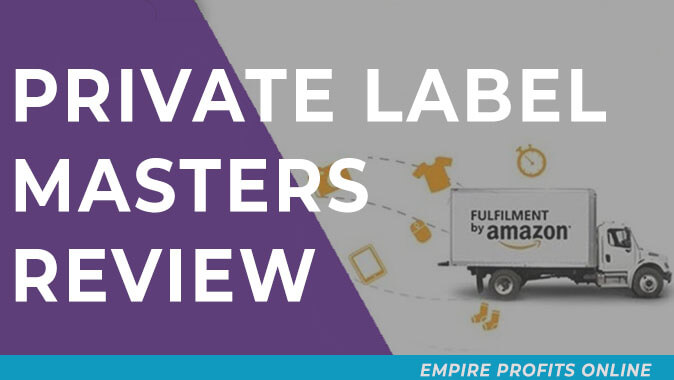This Private Label Masters Review tackles one of the most popular choices for an educational resource in Fulfillment by Amazon (FBA).
Because of its popularity among prospective FBA sellers, I wanted to do a rundown on how the course is presented. I also wanted to discuss if it's legit or whether the whole course is a scam.
The Private Label Masters Course
The Private Label Masters course provides a comprehensive learning experience if you want to learn the art of Amazon FBA.
The process of an FBA is that Amazon sellers can look for suppliers through other platforms like Alibaba, but the products themselves are sold as the seller's products.
The “private label”, then, is very much like a reselling process.
Tim Sanders: The Mind Behind the Course

Besides his presence on YouTube adverts and the course, there is not much known about the creator.
Despite the popularity of Private Label Masters, Sanders is not one of the bestselling authors or experts you can easily find on social media.
Going off of what is available on the internet, Sanders works primarily in consultancy jobs. However, his YouTube channel has taken off, which adds credence to the knowledge he imparts to his subscribers.
People seem to connect with his content on the channel and use the information on their businesses.
However, his content does have an obvious marketing slant to it. The goal is to get people like you to buy his course. It is important to look at the big picture and decide for yourself if you will invest in his resources.
It might be a red flag that his net worth is not easily available on the internet, although Sanders claims that he incurred $8,000,000 in net worth.
Private Label Masters Course: All Modules

These modules contain lessons that tackle the specifics of Amazon FBA.
If you are interested in this business practice, you should look into how the content is presented before purchasing it.
All the lessons are presented in video format. This may be a good thing for audiovisual learners since you can watch them and take notes yourself.
But if you prefer reading or having an accompanying text while watching the content, it might be off-putting.
Tim's YouTube videos can give you a feel for how he presents his lessons.
Module #1: Introduction to the Course

After all, having all the knowledge in the world about the topic will not be enough to carry a long-term business. There must be time and effort taken to implement it fully.
Tim also distances himself from other similar internet ploys that promise an easy way to get rich or earn millions right away. He discusses the reality of waiting for up to six months before you earn profit from the FBA model.
He also talks about the basics of setting up a business for the American market. For this reason, international audiences might have to rely on other resources if they are looking for more information on this particular topic.
In addition, Tim also gets into the fees that Amazon implements on its sellers. These allow you to prepare for the expenses that come with setting up the online business and deciding if your chosen products are appropriate or worth it to spend on.
Lastly, the proper mindset is also important in a long-term business plan. This topic is also discussed in the introduction module.
Module #2: Product Research

Trademarked products may also bring a lot of confusion and hassle, which is why Tim advocates against using these goods in an FBA setup.
The information presented goes into how you can avoid dealing with these types of products.
Products that are underrated but have a lot of potential in terms of sales will also be discussed. Since product sourcing is a very delicate subject matter requiring expertise, this information is very valuable to anybody who is just getting into the art of Amazon FBA.
Module #3: Product Sourcing
Amazon is not the only important website in this setup. Of course, the supplier also matters. Alibaba is one of the best platforms for acquiring goods to sell, and it is the main subject matter for this module series.
In this module, the things you need to look for in a good supplier are discussed.
For example, some suppliers cater more to a specific type of business. Some might not have the most approachable personality during conversations.
It is important to build a good rapport with suppliers, and this section provides some information on the topic.
Negotiating with suppliers is also discussed. In any business, being cost-efficient should be a goal as well. After all, minimizing expenses and maximizing profits are two things that you must keep in mind while doing FBA.
Module #4: Shipping

In an Amazon FBA setup, shipping is even more essential because of how the additional fees can turn off some buyers.
Alternative methods of shipping are also discussed, such as freight forwarding.
Module #5: Branding & Listing Optimization
This module presents information on how you can make a business thrive.
Establishing an identity is one of the most important things in creating a sustainable online startup, even if products are outsourced.
Optimization of listings is one way to do this. The way your company's page is organized has a lot of impact on search results.
People also lean towards buying from sellers whose items are properly labeled and easily searchable.
Module #6: Product Launch Time
Timing is everything. This module shows how important it is to launch a new product on Amazon at the right pace.
This practice helps secure maximum exposure for the item, turning in bigger profits for the seller.
In the long run, this will also aid you in building better public relations strategies for succeeding releases.
Module #7: Sponsored Products
The second to the last module tackles Amazon pay-per-click advertisements. PPC is one way to promote items on the website, but it will need money to be implemented.
Tim offers advice on successfully rolling out these adverts and making the most out of the investment placed on them. However, the content discussed in the module only covers traffic generation.
This means that the scope of the lessons is limited and does not provide new methods of driving profits to your business through sponsorships.
Module #8: Maintaining and Scaling Your Business

This module also covers topics such as partnering with more people who can add to your business arsenal.
While this module has comprehensive lessons, they are meant to be used when your business is more established.
Private Label Masters Review – Facebook Groups
Two Facebook groups also supplement Tim's course. The first is a free or public group open to anybody who wants to know more about the course.
The second is an invite-only group accessible only to those who have purchased the Private Label Masters course.
Conclusion and Final Thoughts
The Private Label Masters course has a lot of information about Amazon FBA. It is well-put-together, and its modules are organized neatly and comprehensively.
For people who want to learn more about Amazon FBA, it is a handy resource for you to have.
Some parts of the modules could have been improved upon, but they cover most of the basics and include information that might not be present in similar courses.
However, the implementation of the knowledge might not be easy for beginners.
Retail is also not discussed well, although it is understandable since the “private label” method is the main focus.
However, if you are completely new to the world of Amazon selling, you might benefit more from the Proven Amazon Course. It only costs $29 for full access, making it cheaper than Tim's offering.
If you have a lot more resources and are willing to learn everything there is to know about Amazon FBA, the Amazon Selling Machine has a lot of value for money.
The full course is the most comprehensive one I have ever encountered.
While this Private Label Masters review shows that Tim's course offers a lot of good information, there are some alternatives that you should keep in mind before purchasing.



